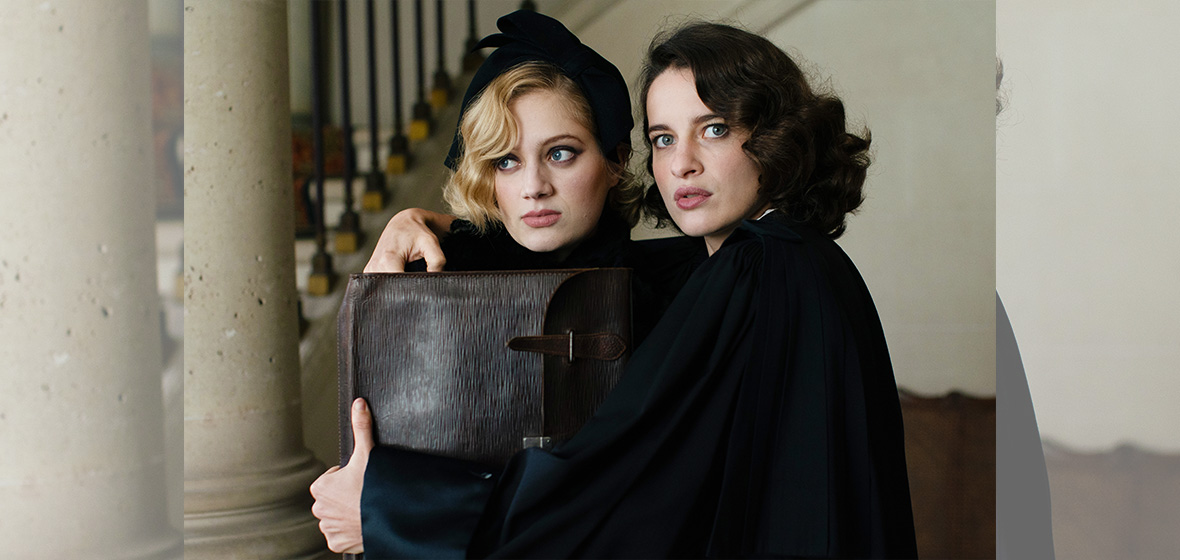François Ozon is a curiosity, even by French standards. A prolific director who hops between genres with extreme confidence. There are places he won’t go – or at least he hasn’t. You probably won’t see him experimenting with anything action-based. Above everything, he doesn’t want the visuals to distract from the humanity of his characters, but there is an underlying wish to constantly please his audience at every turn. Ozon aims to entertain.
At this point in his career, predicting his next film is impossible. My preference is when he goes dark and salacious. Like his thrillers Swimming Pool and Young and Beautiful, or the absolutely gorgeous and heartbreaking Under the Sand and the borderline perverse In The House. But it’s with the stylistically colourful, light-hearted comedies that he enjoyed most of his success – 8 Women is incredibly charming, and though I found Potiche a bit trite, it was a tremendous success.
The Crime is Mine is a comfort zone for Ozon. It is a fast-paced, highly stylised comedy whodunnit set in early 1930s Paris. Based on a play by classic French playwright George Bert, it’s a fast-paced screwball romp that owes as much to the classic tradition of the Comédie-Française as it does to the early works of George Cukor and Ernst Lubitsch.
The story follows two young lady flatmates facing eviction when an opportunity arises to change their luck. Pauline (Rebecca Marder) is an early-career lawyer who can’t find new clients, and Madeleine (Nadia Tereszkiewicz) is an actress waiting for her thunderous debut. When a famous film producer is found dead after a meeting with Madeleine, she becomes the prime suspect, which the two women turn to for their benefit. Madeleine is innocent, but pretending she did murder him, and framing it as a titillating crime of self-defence in court, could be the break both need.
Pauline becomes a respected solicitor, and Madeleine is the hottest young actress, selling out performances every night. It’s at this point that Odette (Isabelle Huppert), a big star of silent movies who hasn’t had a break since the talkies took over, comes with a revelation: she is the one who killed the producer and, jealous of the success it brought to Madeleine, now wants her piece of the pie.
Ozon and his writer, Philippe Piazzo, keep the original structure to a tee. Scenes are long and contained in one location (the girl’s bedroom, the Judge’s office, the courthouse, a fancy hotel, etc). Characters come in and out of the stage as necessary, and their arcs are more like rollercoasters. For example, one of my favourite episodes is when the Judge (Fabrice Luchini) is in his office interviewing the murder suspects. With the confidence of an incompetent powerful man, he starts by accusing his friend Fernand Palmarède (Dany Boon), who actually had something financial to gain from the producer’s death. But Palmarède had the alibi of being in the Judge’s home for dinner that night. “Is there anyone that can confirm that?” “You, it was your home?” “As a judge, that wouldn’t be appropriate”.
Luchini and Boon sell the scene like masters, which continues with Madeleine arriving and admitting to the crime she sees as an opportunity.
Then there’s Isabelle Huppert. Probably the greatest actress still working (because Gena Rowlands retired), she manages to elevate the film’s second half when the plot loses a bit of steam. By then, we mostly watch it for Huppert’s hilarious and over-the-top performance, played like a French lesbian Mae West.
The problem is that for comedies like these to work, the editing and filmmaking need to be tuned like a Swiss clock. Pacing is all too important; shots must complement the action and help the audience focus on the acting, while editing needs to flow like a Charleston tune. Ozon doesn’t always use movement to the best of his abilities, because he feels confident the quality of the writing and the actors is enough to carry the scene. Those actors are for the most terrific – especially Huppert, Boon and Luchini, who are entirely aware of the kind of film they are. But Marder and Tereszkiewicz struggle to stand out when next to other giants.
That said, The Crime Is Mine is a charming piece of cinema. The kind of people used to dress up for a night at the pictures. It’s not made to rock the world, but like every Ozon, it aims to entertain.
Verdict: 3 out of 5
For Francophiles whose comfort is monthly rewatches of His Girl Friday




